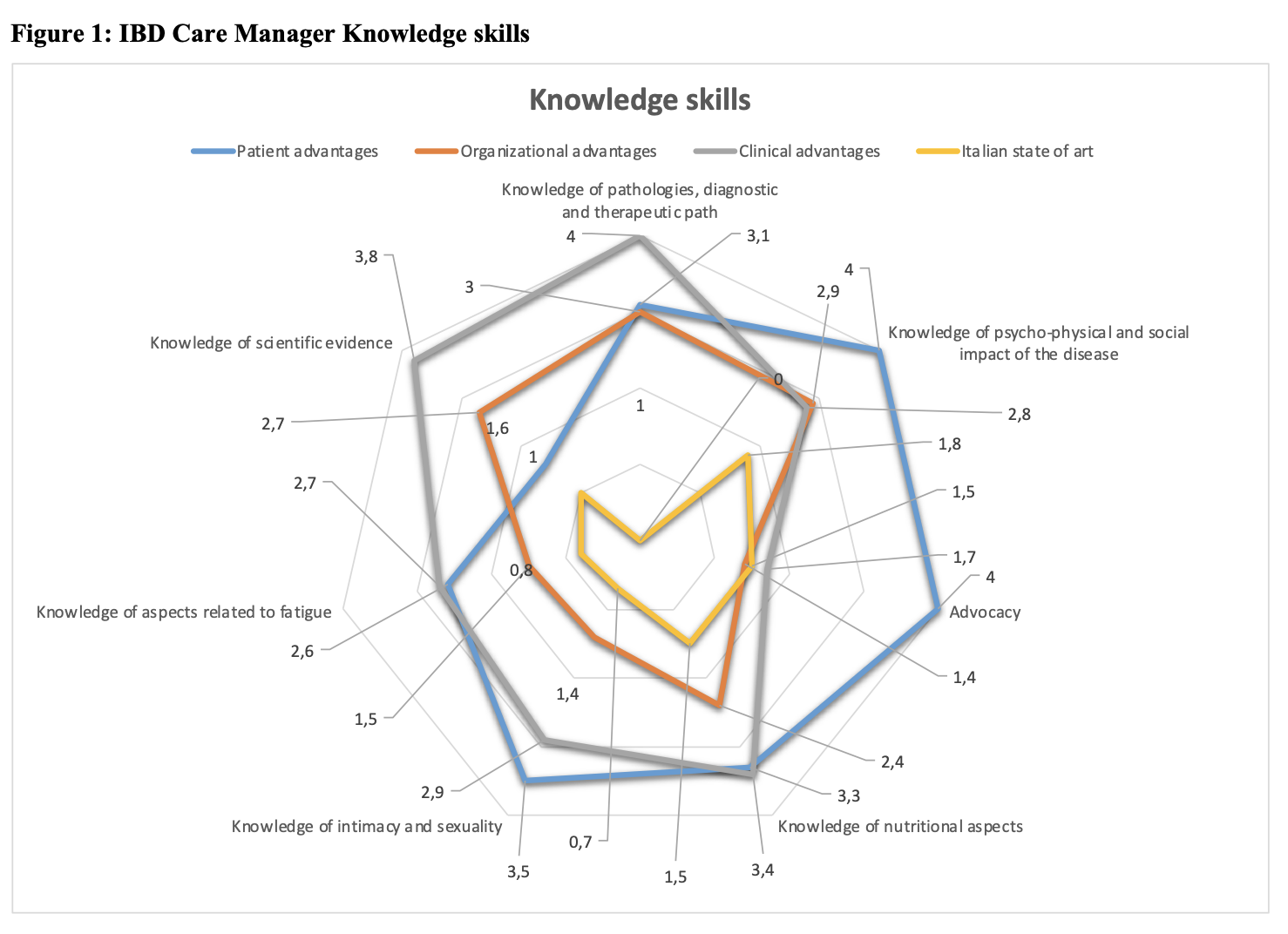N08 The emerging role of the IBD Care Manager: preliminary results from a survey by Italian IBD nurses
Napolitano, D.(1)*;Schiavoni, E.(1);Laterza, L.(1);Mora, V.(1);Sofo, L.(2);Pugliese, D.(1);Gasbarrini, A.(1);Scaldaferri, F.(1);
(1)Fondazione Policlinico Universitario "A. Gemelli" IRCCS- Università Cattolica del Sacro Cuore, CEMAD Digestive Disease Center, Rome, Italy;(2)Fondazione Policlinico Universitario "A. Gemelli" IRCCS- Università Cattolica del Sacro Cuore, Department of Surgical Sciences, Rome, Italy;
Background
A multidisciplinary team (MT) approach has increasingly taken a prominent role in the management of IBD patients, providing a complete level of assistance. A key figure is represented by the IBD care Managers (ICM), who is usually an independent practice nurse, responsible for evidence-based assessment, care planning, treatment evaluation and the provision of practical information, health education and emotional support to patients. The ICM coordinate also each figure of the MT and help patients to accede to community resources and social services. The aim of the study is to investigate what are the skills required for ICMs, according to the nurses’ judgement.
Methods
A questionnaire was created by a team of experienced nurses on the basis of the Second N-Ecco declaration of consent and administered to nurses who have worked in an IBD unit for a period of at least three years. A definition of the ICM was provided to any participant. The questionnaire consisted of 3 sections: behavioural, knowledge and managerial skills than an ICM (score with Likert scale 0-4). The questions of the created sections were studied in relation to the benefits for the patient, the organizational advantages, the clinical advantages and the Italian state of the art.
Results



55 nurses partecipated to the study from 16 Italian centers. In the evaluation of behavioural skills (Fig. 1) of the ICM, "Management and support of the pregnant patient" (0.7), is the lowest scored item, while "patient privacy" obtained higher scores (3.2). In the evaluation of knowledge (Fig. 2) of the ICM, the "Knowledge of intimacy and sexuality" obtained the lowest score (0.7), while knowledge of pshyco-phisical and social impact of the disease obtained an higher score (1.8). In managerial skills (Fig. 3) the "Management of the pain" (0,8) obtained a lowest score compared to "Management of biological therapies" (2.6).
Conclusion
This is the first national survey exploring the role and the required skills of ICMs The awareness of ICM, their role and the measure of their performances, is the first step to foster the development of this figure in the health system. Further studies are mandatory to assess clinical and organizational outcomes.


